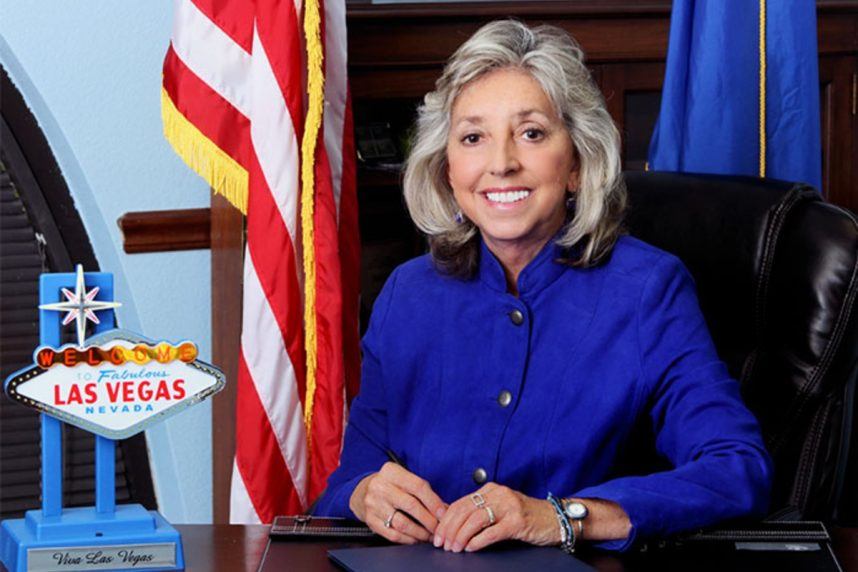Rep. Titus’ FAIR Bet Act Garners Support of AGA After Group Faced Criticism for Supporting ‘Big Beautiful Bill’
Posted on: July 8, 2025, 07:56h.
Last updated on: July 8, 2025, 09:21h.
- Rep. Titus has filed the FAIR Bet Act to restore the gambling losses reduction
- The One Big Beautiful Bill reduced the gambling tax loss reduction by 10%
- The American Gaming Association has faced criticism for supporting the One Big Beautiful Bill
On Monday, U.S. Rep. Dina Titus (D-NV) followed through on her promise to fix a glaring problem for gamblers that became law with President Donald Trump’s signing of the One Big Beautiful Bill Act (OBBBA).

Titus, along with Rep. Ro Khanna (D-CA), filed the Fair Accounting for Income Realized from Betting Earnings Taxation (FAIR Bet) Act that seeks to restore the 100% deduction for gambling losses. The legislation later garnered bipartisan support when Rep. Troy Nehls (R-TX) lent his name to the statute.
The FAIR Bet Act seeks to repeal the One Big Beautiful Bill’s condition that reduces the amount of losses a gambler can deduct from their tax obligation by 10%. Before Trump signed the budget reconciliation law that contains hundreds of tax and spending provisions, gamblers could deduct 100% of their losses against their winnings. Next year, they will only be able to deduct up to 90%.
My FAIR BET Act would rightfully restore the full deduction for losses so gamblers don’t pay taxes on money they haven’t won,” Titus said. “This common-sense legislation will bring fairness back to gaming taxation, making sure that gamblers can fully deduct losses when they report their winnings.”
Titus said the restoration is important to all who play, from recreational to high-stakes gamblers.
“We should be encouraging players to properly report their winnings and wager using legal operators. The Senate change will only push people to not report their winnings and to use unregulated platforms,” Titus added.
Tax Examples
If a gambler wins $100K in a given year but also racks up $100K in losses, under the current tax law, they would have no gambling income to report. Under the new regulatory environment, that person would only be allowed to deduct $90K against their $100K in winnings, meaning they’d be on the hook for $10K in earnings.
Let’s say that person made $90K at their day job, which would qualify them for the 22% IRS tax bracket for a single taxpayer. With their $10K in gambling “winnings,” their tax responsibility for the year is now $100K. Their final tax bill rises from $19,800 to $22K — a difference of $2,200. The person is essentially paying the federal government $2,200 on $10K they never retained at the end of the tax year.
For a high-stakes gambler with larger winnings and losses, or higher-income earners, the tax implications are greater, as the IRS’s top tax bracket is 37%.
AGA Criticism
After Congress passed the One Big Beautiful Bill, the American Gaming Association (AGA) oddly expressed its support.
“Our industry’s ability to sustain quality jobs and deliver economic benefits is significantly enhanced by the tax policies of the One Big Beautiful Bill Act that support consumers, encourage business innovation and investment, and strengthen US competitiveness,” said the trade group that represents the commercial and tribal gaming industries on Capitol Hill.
The AGA faced much criticism from gamblers who said the lobby was out of touch with players — the lifeblood of the industry it seeks to protect and promote. Though the AGA said it would “work closely with Congress … to address the changes to the wagering deduction losses and further modernize the tax code,” many took issue with the organization lending its backing to the OBBBA.
The AGA has since issued another statement on Titus’ FAIR Bet Act.
“The American Gaming Association applauds Congresswoman Titus for introducing the FAIR BET Act. We are committed to working with Congresswoman Titus, other congressional leaders, and the Trump Administration to restore the long-standing tax treatment of gaming losses,” the AGA said in a statement.
Unless the FAIR Bet Act passes and is signed into law, the gambling losses tax reduction goes into effect in 2026.
Last Comments ( 3 )
Would hurt a ton of people, lets hope they can this bill to overturn that clown from Idaho
It actually is a huge deal for professional gamblers especially poker pros.
It's not a big deal at all.